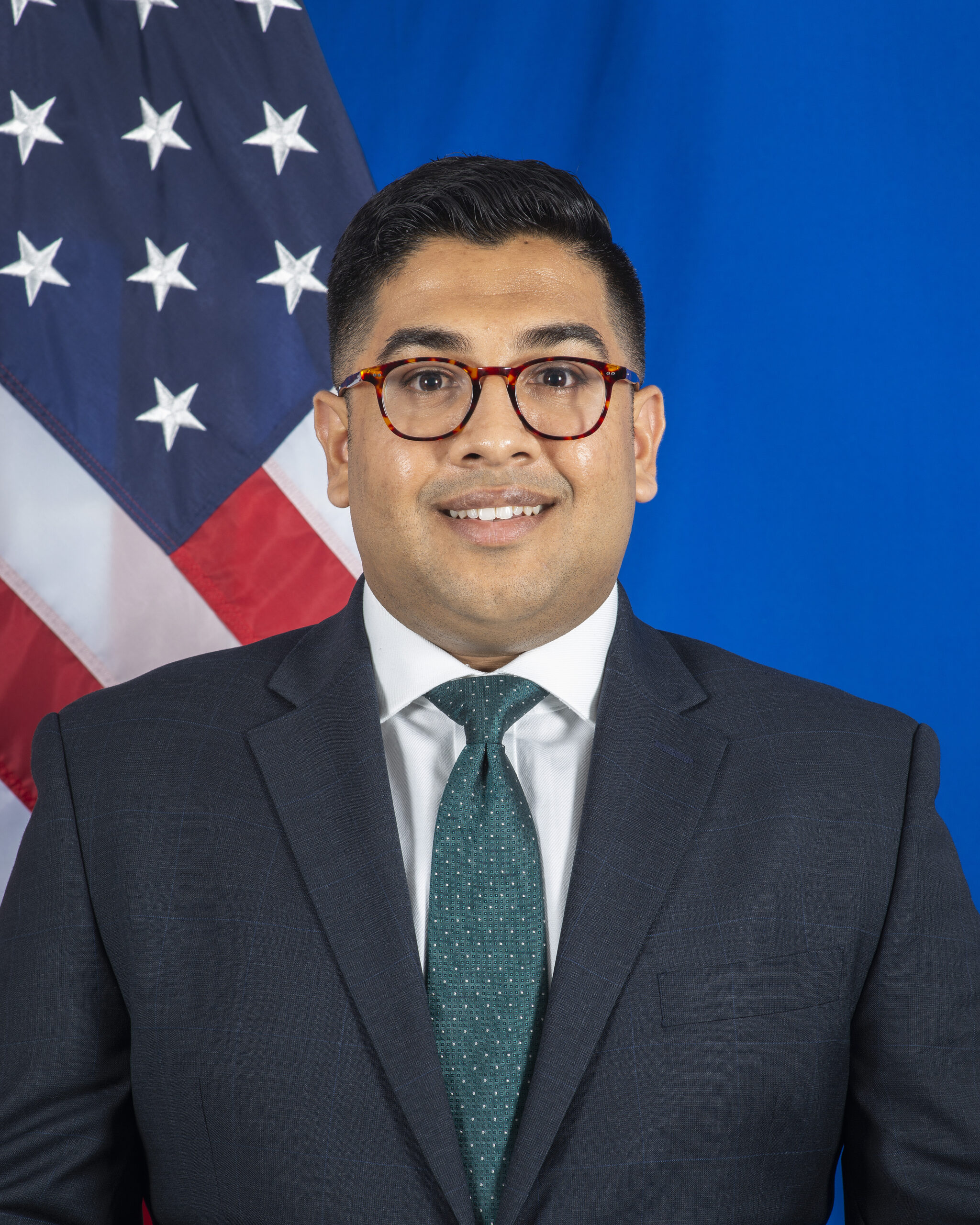State Dept Press Briefing – Aug 30

The US State Dept held a press briefing in Washington on Aug 30 with Principal Deputy Spokesperson Vedant Patel fielding a wide range of questions.

Excerpts
MR PATEL: Hey there. Thanks so much. Good afternoon, everybody, and thank you for joining us today. I have two quick things for you at the top before we dive into your questions.
So first, the United States, through USAID, is providing an additional $30 million in humanitarian assistance to support the people affected by severe flooding in Pakistan resulting from heavy monsoon rains, as well as landslides and glacial lake outbursts, since mid-June.
The flooding has affected an estimated 33 million people and resulted in more than 1,100 deaths and more than 1,600 injuries. In addition, more than one million homes have been damaged or destroyed, and nearly 735,000 livestock – a major source of livelihood and food – have been lost, and the flooding has damaged roads and more than two million acres of agricultural land.
With these funds, USAID partners will prioritize urgently needed support for food, nutrition, multi-purpose cash, safe water, improved sanitation and hygiene, and shelter assistance.
A USAID disaster management specialist arrived in Islamabad on Monday to assess the impact of the floods and coordinate with partners on response efforts. USAID staff in Islamabad, Bangkok, Washington, D.C. continue to monitor the situation in close coordination with local partners, the Government of Pakistan, and U.S. Embassy Islamabad.
We are deeply saddened by the devastating loss of life and livelihoods throughout Pakistan. We stand with Pakistan during this difficult time, and the U.S. is proud to be the single largest humanitarian donor to Pakistan.
One more thing. The U.S. Government has assessed that Moscow is preparing to stage sham referenda in areas of Ukraine under its control. We expect Russia to manipulate the results of these referenda in order to falsely claim that the Ukrainian people want to join Russia. This is a part of Russia’s playbook to attack the sovereignty, identity, and history of Ukraine.
These referenda could take place in the coming weeks. But Ukraine, the United States, and the international community know the simple truth – that all of Ukraine is and will always remain Ukraine. No matter how many Russians soldiers or puppet officials might be installed there, the Kremlin cannot change the borders of sovereign Ukraine by force.
The Kremlin continues to prepare to hold sham referenda on joining Russia in Kherson, Zaporizhzhia, and the so-called Donetsk and Luhansk People’s Republic. Russian leadership has instructed officials to begin preparing to hold a sham referendum in parts of Kharkiv as well. These sham referenda will attempt to give a veneer of legitimacy to a blatant land grab that would violate the Ukrainian constitution and international law, including the UN Charter, and contravene principles of the OSCE.
The people of Ukraine and the world will not be fooled by this mockery of a process. We stand by the people of Ukraine and their democratically elected government.
And with that, I’m happy to take your questions.
MR PATEL: First, let’s go to the line of Matt Lee with the Associated Press.
QUESTION: Yeah, hey, listen just on your second topper there, you guys have been saying for months now that the Russians are going to do these sham referenda. Is there something new or particularly imminent about this? I’m just curious as to why today you’re raising this point again when it’s been raised multiple times in the past going back at least two or three months.
MR PATEL: Thanks, Matt. You’re right. We’ve raised this before, but we just wanted to share some additional information that we had about this, as I detailed in my topper, and to reiterate some of those points again that previously hadn’t been public. Polling data shows that in a free referendum that Ukrainians in the occupied areas would not choose to join Russia. The NDI’s May 2022 poll found that only three percent of Ukrainians would like Ukraine to join the Russian-led Eurasian Customs Union.
I would also note, which is not something we’ve said previously, that preparations for the sham referenda are being led by the first deputy head of Russia’s presidential administration, Sergey Kiriyenko. Kiriyenko is responsible for overseeing the Russia-held territories in advance of their attempted incorporation into Russia, which would be illegal if completed.
Let’s go to the line of Shaun Tandon with AFP.
QUESTION: Could I follow up on Iraq? Do you have any follow-up on anything further to say about the status of the U.S. embassy, about safety of Americans in light of the violence yesterday? On the political developments, the president of Iraq earlier today was talking about holding new elections, saying that could be a way out of the political impasse. Does the United States have any view one way or another on that and how that would – whether that would be a good idea?
If you don’t mind, a somewhat general question on the aid to Pakistan. To what extent is climate a factor that you think needs to be addressed in this? The UN secretary-general notably was quite forceful today speaking about how climate change – this shows how climate change needs to be addressed better. If you have any remarks on that, I’m wondering if you could.
MR PATEL: Thanks so much, Shaun. I have no update on embassy stature or operations beyond what I briefed yesterday. Of course, ensuring the safety of U.S. Government personnel, U.S. citizens, and the security of our facilities remain our highest priority. I will also note that a travel for – a Level Four Travel Advisory Warning remains in place in Iraq for American citizens intending to travel.
On the second part of your question, I think what I would reiterate what we’ve said previously is that we encourage all parties to resolve their differences through dialogue and engagement. This is an Iraqi issue, not a U.S. issue. And we have constantly reaffirmed that — the U.S. Government’s commitment to a strong, stable, and prosperous Iraq. We believe that a long-term, deep, multifaceted strategic partnership with Iraq serves both the Iraqi and American people.
And on your final question about flooding, we’ve seen, I’m sure, a number of extreme weather events across the world over the past year or two. And so, it’s for that reason that addressing climate both through the work of this department and the interagency continues to be one of the top priorities for this administration. It’s work that Secretary Blinken takes seriously. It’s a key goal of his, as well as the important work being led by Special Envoy Kerry as well.
Let’s next go to the line of Daphne Psaledakis with Reuters.
QUESTION: A quick question on Taiwan. Taiwan fired warning shots at a Chinese drone which buzzed an offshore islet on Tuesday. How concerned is Washington about escalating tensions?
And then if I could, just on the Solomon Islands, which has suspended entry into its waters for foreign navy ships pending adoption of a new process for approval of port visits, does Washington believe China is pressuring the Solomons to change the status quo in the region regarding ship visits? And based on your understanding, does this moratorium apply to potential visits by Chinese naval vessels as well?
MR PATEL: Thanks, Daphne. So, on your question about the Solomon Islands, U.S. Coast Guard cutter Oliver Henry diverted to Papua New Guinea after the Solomon Island Government didn’t provide diplomatic clearance for the vessel to refuel and provision in port. The U.S. Oliver – the Coast Guard cutter Oliver Henry is – was in the region as part of the Pacific Island Forum’s fishery agency’s Operation Island Chief. The operation aims to support regional partners effectively and efficiently; protect their national interests; combat illegal, unreported, and unregulated fishing; and strengthen maritime government on the high seas and model professional maritime behavior to partners and competitors.
It’s disappointing that the Oliver Henry was not provided diplomatic clearance in support of its operation with the FFA. I will note that on August 29th, the U.S. received formal notification from the Government of the Solomon Islands regarding a moratorium on all naval visits pending updates in protocol procedures.
Sorry about that. Going back to your first question, Daphne, so I think it’s important to take a step back here. Over the past number of weeks, China has overreacted and has made provocations, whereas the United States and others in the region have been measured and responsible. And we have been clear that it’s important not to escalate and that there is no reason for the – for a crisis. We’ve also reiterated our intention of continuing to operate in the region, accordance – in accordance with international law, and we’re going to continue to support Taiwan as well as maintain open lines of communication with Beijing as well.
Let’s go to the line of Jennifer Hansler with CNN.
QUESTION: Going back to Iraq, are there any discussions about increasing security in or around the embassy compound in Baghdad in light of the protests in the international zone? And have there been any discussions between U.S. and Iraqi officials and does Secretary Blinken plan to call the prime minister?
MR PATEL: Thanks. So, I have no calls or engagements to read out from the department. What I would reiterate is that we consistently reaffirm the United States commitment to a strong, stable, and prosperous Iraq, and we believe a deep, multifaceted partnership with Iraq both – serves the people of both countries.
On the first part of your question, I don’t have any updates to provide. Certainly, I’m not going to get into deliberative policy processes about potential security preparedness, but again would reiterate that there has been no change in posture at our embassy in Baghdad, as I noted yesterday as well.
Next, let’s go to the line of Said Arikat.
QUESTION: Two quick questions. Today an Israeli court sentenced the Gaza representative of World Vision, an American Christian charity organization, to 12 years in prison. There has been no evidence of – his lawyers and even the organization itself. I wonder if you have a position on this. First, are you familiar with the case? And second, do you have a position on this?
And my second question is regarding Bachelet, the outgoing High Commissioner for Human Rights for United Nations. Michelle Bachelet criticized Israel today for not issuing or renewing visas for UN officials tasked with monitoring the human rights situation in the occupied Palestinian territories. I wonder if you have any comment on that as well.
MR PATEL: On your second question, I don’t have anything for you on that at the moment. Happy to check if we have any updates and can circle back.
But on your first question, the U.S. has closely monitored this case, the one that you mention, and we have noted UN and NGO concerns about fair trial guarantees. We previously have been in touch with Mohammad al-Habib’s attorney to learn more about his detention and the court case, and we have expressed to Israel our deep concerns over the length of his trial.
We continue to urge the full respect for human rights in Israel and the West Bank and Gaza. As we have said many times before, Palestinians and Israelis equally deserve to live safely and securely and enjoy equal measures of freedom, prosperity, and democracy. We’ll continue to elevate the role of human rights in our foreign policy and to encourage legal reforms that advance respect for human rights of all individuals.
Next, let’s go to Alex Raufoglu with Turan.
QUESTION: I have two questions, but before that I do want to follow up on Matt’s question regarding the referenda. You mentioned rightly that some of the details are indeed new about involved actors, but we also did not hear anything new in your renewed response other than just we will not recognize the sham referenda. Is it fair to expect more than that, like sanctions or other tangible steps that might possibly make Russia think twice?
And now to my other questions, staying on Russia. There are reports that Russia has already obtained hundreds of Iranian drones capable of being used in its war against Ukraine, despite your warnings to Tehran not to ship them. Are you in a position to confirm those reports? Also, I would appreciate if you gave your comment on that, specifically potential implications for the wider region.
And lastly, on Armenia-Azerbaijan, President of European Council Charles Michel will host next (inaudible) summit between Aliyev and Pashinyan tomorrow in Brussels. What are the DOS expectations from that meeting and also other communications between the two countries asides today’s meeting in Moscow?
MR PATEL: Let me see if I can unpack that a little in three parts.
So first, in terms of action, look, we have stood with Ukraine for 31 years and we will continue to firm – firmly stand with them as they defend their freedom and independence. Our support for Ukraine is unwavering, and we continue to take steps to ensure that Ukraine can defend itself, defend its territorial integrity, defend its sovereignty, as well as put it in the best position possible at a potential negotiating table.
But on top of that we also continue to have at our arsenal a number of consequences that we can continue to put onto Russia, whether that be economic sanctions and other things as well. And I will also note that the economic costs are hitting Russia and they’re hitting them hard. I’ll note that the import of goods could fall by 40 percent, which will lead to a shortage of foreign components, rapidly declining industrial production, and waves of underemployment. I will also note that Russia’s economy is so deeply tied to fossil fuels that it has no significant alternative industry to make up for declining oil and gas revenue. So those are just examples of how our actions continue to hold Russia accountable.
On your second question, we’ve spoken to this a little bit before, but the United States assesses that Russia has received UAVs from Iran. And over the course of several days in August, Russian transport aircraft loaded the UAV equipment at an airfield in Iran and subsequently flew from Iran to Russia. This initial delivery is likely part of Russia’s plan to import hundreds of Iranian UAVs of various types. Russian operators continue to receive training in Iran on how these systems – on how to use these systems. And we assess that Russia intends to use these Iranian UAVs, which can conduct air-to-surface attacks, electronic warfare, and targeting on the battlefield, in Ukraine.
The Russian military is suffering from major supply shortages in Ukraine in part because of sanctions and export controls, forcing Russia to rely on unreliable countries like Iran for supplies and equipment. In fact, our information indicates that UAVs associated with this transfer have already experienced numerous failures. Russia deepening an alliance with Iran is something that the whole world and especially those in the region should look at and see as a profound threat.
We’ll continue to vigorously enforce all U.S. sanctions on both the Russian and Iranian arms trade, and we will stand with our partners throughout the region against the Iranian threat.
And on your final question about Armenia and Azerbaijan, I don’t have any updates for you other than to reiterate what we’ve previously said, that the United States remains committed to promoting a secure, stable, democratic, prosperous, and peaceful future for the South Caucasus region, and we urge Armenia and Azerbaijan to intensify their diplomatic engagement and achieve a comprehensive peace agreement.
Next, let’s go to the line of Ed Wong with The New York Times.
QUESTION: I wanted to follow up on Daphne’s earlier question about the Solomon Islands. Does the State Department have any indication that Chinese officials have exerted any sort of influence over the Solomon Islands Government on its recent moratorium? And have PLA navy ships made any visits recently to the Solomon Islands, or do you expect them to make such visits in the near future? And finally, is the opening of the U.S. embassy that will cover the Solomon Islands on track to take place, as Secretary Blinken announced in February? And what’s the current status of discussions on the naval visits right now between U.S. diplomats and the government there?
MR PATEL: I don’t have any updates or assessment to provide from here other than reiterating that it is, of course, disappointing that the Coast Guard cutter Oliver Henry was not provided with the diplomatic clearance in support of its operation with the FAA. And as I noted, on August 29th we received formal notification from the government regarding a moratorium on all naval visits pending updates in protocol procedures.
Next, let’s go to the line of Abigail Williams with NBC News.
QUESTION: Two questions on unrelated topics. First, can you provide the latest on where negotiations stand on a return to the Iran nuclear deal? And more specifically, do you have any response to reports that the U.S. and Iran have reached an agreement to return to the deal which would be announced in the next two to three weeks?
And then separately, do you have any response to a letter sent by a group of senators to Secretary Blinken once again asking that detained American in Russia Mark Fogel be classified as wrongfully detained? Thanks so much.
MR PATEL: On your question about the JCPOA, that reporting is false. We have not concluded an understanding. The situation remains the same as I briefed yesterday. We received Iran’s comments on the EU’s proposed final text through the EU, and we have responded to the EU on Wednesday, August 24th. Now it is up for Iran to answer.
On your second question, there is a protocol and procedure in place for the assessment of wrongful detention. I don’t have anything to provide beyond that.
Next, let’s go to the line of Camilla Schick with CBS News.
QUESTION: I just had a question about the IAEA team on the ground in Ukraine right now. Can you give any update of what is the understanding of when they are scheduled to go and visit Zaporizhzhia Nuclear Power Plant, whether that’s something today or tomorrow, or whether that’s still up in the air? Thank you.
MS PATEL: Thanks Camilla, and no, I hadn’t had a chance to address that yet. But as confirmed publicly by the IAEA, an expert team is currently in Kyiv and is expected to arrive at the ZNPP later this week. Russia has said that it will let the IAEA team inspect the power plant, and we hope Russia lives up to its word and allows a full inspection of the facilities and unhindered access to the operators. I don’t have anything further to preview on that, though, at this time.
Next, let’s go to Nike Ching with Voice of America.
QUESTION: Thank you, Vedant, for the phone briefing. On China and Taiwan, do you have anything on Arizona governor’s visit to Taiwan this week? Did the State Department get a heads-up or facilitate his visit, and is it fair to say this is in line with usual practices that are in place for years?
Also, just – follow-up on what you said earlier about China’s military escalation in the Taiwan Strait: does the U.S. assess it’s a result of Chinese domestic political calculation, particularly in the weeks leading to China’s 20th Communist Party Conference?.
MR PATEL: I will let the delegation speak to their own travel and any specifics around that. But what I will note and I have repeatedly noted is that members of Congress and elected officials from varying levels of government have gone to Taiwan for decades and will continue to do so. This is, of course, in line with our longstanding “one China” policy.
And sorry, on your – on the second part of your question, I am certainly not going to speculate. But what I would reiterate is that over the past week, many weeks, China has overreacted and taken provocations, and the United States’ response has been measured and responsible. And we have made clear that we do not intend to escalate the situation or cause any crises, and we certainly do not intend to change our longstanding “one China” policy.
We’ve also made clear that we’re going to continue to operate in the region as consistence and in accordance with international law. That also means maintaining open lines of communication with the PRC but also supporting Taiwan.
Next, let’s go to the line of Laurie Mylroie with Kurdistan 24.
QUESTION: On Iraq, Muqtada al-Sadr has called on his supporters to end their protests. Do you have a response to that?
MR PATEL: As we’ve said previously, now is the time for all parties to resolve the current impasse. Above all, we urge all those involved to remain calm, abstain from violence, and pursue peaceful avenues of redress. The right to peaceful public protest is a fundamental element of all democracies. The demonstrators need to respect the property and institutions of the Iraqi Government which belong to and serve the Iraqi people.
And I will mention again, as in response to some of your colleagues’ questions as well, we have consistently reaffirmed that – our government’s commitment to a strong, stable, and prosperous Iraq. A long-term, deep, and strategic partnership with Iraq serves the people of both of our countries.
Let’s go to the line of Hiba Nasr, Asharq News.
QUESTION: My first question is on Taiwan. Can you please confirm that the State Department would ask the Congress for approval for a military sale worth $1 billion?
And my second question on Iraq. President Biden said during his visit to the region that the United States is staying there, is not going anywhere. I mean, Iraq was about to collapse yesterday. Is there any kind of engagement from your side? You have 2,500 troops there. They are not in a combat mission, but what kind of engagements did you make these two days? Nothing? Thank you.
MR PATEL: I will reiterate what I’ve said previously, is that we have a long-term commitment to this region. We reaffirmed this fact at the July Strategic Dialogue in Washington, where representatives of our countries met to discuss strengthening our long-term strategic relationship, not just in the security space but also when it comes to trade, culture, education, and the environment. And I will say again the U.S. wants to see a strong, united, resilient, and sovereign Iraqi state. We will stay with them and continue to support this process.
As I addressed to some of your colleagues, we don’t have any calls or specific engagements to read out, but we continue to pay close attention to this – to the situation.
On your question about Taiwan, as a matter of policy we do not publicly comment or confirm proposed defense sales until they’ve been formally notified to Congress. But I will note, as I have said many times, we will continue to fulfill our commitment under the Taiwan Relations Act, and that includes supporting Taiwan’s self-defence.
Let’s go to the line of Joseph Haboush with Al Arabiya.
QUESTION: I wanted to ask just also a follow-up on Iran in terms of some more details. Are you guys – I mean, are there plans for another round of talks, one?
Two, moving to Iraq, Reuters had reported earlier today that a series of rocket attacks pushed U.S. contractors out of the country where they were working to expand one of the biggest gas fields there. Part of that expansion project was funded through an agreement with USAID – or U.S. International Development Finance. Can you confirm that?
And last one – is Barbara Leaf traveling? Is she on official travel? And if so, could you let us know where?
MR PATEL: Let me take that last part of your question first. I can confirm that Assistant Secretary Leaf is traveling to the region and is in Tunisia today, where she met with the president and other Tunisian officials. I don’t have any other information for you on our travel, but we’ll have more updates today and through the course of the week.
On the topic of your question about the JCPOA, I don’t have any additional specifics to provide at this time. We, of course, are not going to negotiate in public. But as I said earlier, we received Iran’s comments, we’ve responded to them, and now it’s up to Iran to answer. We have been sincere and steadfast in pursuing a path to meaningful diplomacy to achieve a mutual return to compliance of the JCPOA. And we continue to believe that a mutual return to compliance is not only in the national security interests of the United States; it continues to provide critical non-proliferative benefits but is also for – an important step for regional stability as well.
And on the topic of Iraq, I just don’t have any additional updates to provide for you on security or embassy personnel. As I said, there has been no change in our posture since yesterday.
All right, we have time for a couple more questions. And so next, let’s go to the line of Eduard Ribas with EFE.
QUESTION: The Mexican president said that Secretary Blinken is traveling to Mexico this September. Can you confirm this?
MR PATEL: Thanks so much for your question. I don’t have any travel to the region to preview or announce at this time.
Next, let’s go to Victor Shalhoub with al-Arabya al-Jadeed.
QUESTION: I assume that you learn about the four conditions laid down today by President Raisi concerning the JCPOA. Do you have any comment, especially about Iran’s condition about ending the IAEA inspections in order to return to the implementation of the JCPOA?
MR PATEL: Thanks, Victor. EWe fully support the efforts of Director General Grossi and the IAEA Secretariat to engage Iran on the need to provide the necessary cooperation in order to clarify and resolve the open safeguards issues. Safeguards on nuclear materials relate to the very core of the IAEA’s mandate. And we have been crystal clear that we do not believe there should be any conditionality between reimplementation of the JCPOA and the investigations related to Iran’s legal obligations under the NPT and its Comprehensive Safeguard Agreement.
And thanks so much, everybody, for joining today. I really appreciate it. And we’ll talk to you all again soon.
(The briefing was concluded at 2:40 p.m.)
-
Book Shelf
-
 Book Review
DESTINY OF A DYSFUNCTIONAL NUCLEAR STATE
Book Review
DESTINY OF A DYSFUNCTIONAL NUCLEAR STATE
- Book ReviewChina FO Presser Where is the fountainhead of jihad?
- Book ReviewNews Pak Syndrome bedevils Indo-Bangla ties
- Book Review Understanding Vedic Equality….: Book Review
- Book Review Buddhism Made Easy: Book Review
- Book ReviewNews Elegant Summary Of Krishnamurti’s teachings
- Book Review Review: Perspectives: The Timeless Way of Wisdom
- Book ReviewNews Rituals too a world of Rhythm
- Book Review Marx After Marxism
- Book Review John Updike’s Terrorist – a review
-
-
Recent Top Post
-
 CommentariesTop Story
India’s Migration Dilemma
CommentariesTop Story
India’s Migration Dilemma
-
 Commentaries
Crowd Management Blues
Commentaries
Crowd Management Blues
-
 Meher Baba SpeaksNews
Meher Baba Loved Them Too…
Meher Baba SpeaksNews
Meher Baba Loved Them Too…
- Commentaries Record Pentagon spending bill and America’s hidden nuclear rearmament
-
 CommentariesNews
Ides of trade between India and Pakistan
CommentariesNews
Ides of trade between India and Pakistan
-
 Commentaries
How sustainable is the rhetoric of India-China Bhai-Bhai
Commentaries
How sustainable is the rhetoric of India-China Bhai-Bhai
-
 CommentariesTop Story
New Set of Diplomatic Strains with Canada
CommentariesTop Story
New Set of Diplomatic Strains with Canada
-
 News
Ratan Tata’s Legacy
News
Ratan Tata’s Legacy
-
 Commentaries
India’s Strategic Push on the World Stage
Commentaries
India’s Strategic Push on the World Stage
- Commentaries Veils of Resistance
-
AdSense code
















